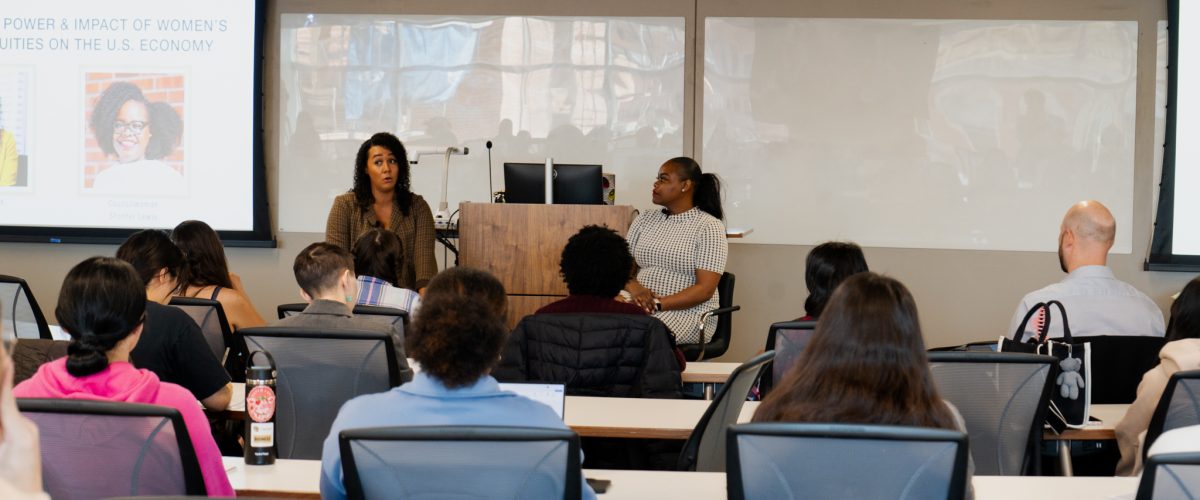
The end of tax season means finances and the economy are on everyone’s mind, but have you ever considered economic inequalities? Currently, women and people of color have less access to the economy. Despite social advances that mean women don’t need to marry, married women are richer than their single counterparts. Many barriers prevent equal access to the economy, and to analyze these barriers, and how to overcome them, Danielle Shoots, ‘08, and Councilwoman Shontel Lewis joined CU Denver’s Empowering Women in Business course to host an open discussion.
Through their discussion, Shoots and Lewis broke down the causes of these economic inequalities. The American economy was built on the back of slavery, and a system built on free labor struggles to remain functional when the labor is no longer free. Women and BIPOC individuals have less access to our current economy because, at the time of the economy’s formation, they were barred from participating in it. According to Shoots, the current failings of the healthcare system stem from Medicaid and Medicare’s inability to negotiate with private health insurance companies. This inability to bargain means the government cannot compete against providers, keeping medical costs high.
However, it isn’t all doom and gloom. Although they see different possible solutions, both Lewis and Shoots believe that positive changes can be made. Lewis doubts capitalism’s ability to bring about good and believes that government programs, like social housing, can help rebuild the economy. Low-income housing often concentrates on poverty, but social housing, or mixed-income housing, lets people pay a fixed percentage for homes based on their income.
According to Shoots, companies need to start investing in their employees. In some cases, profit is gained through the exploitation of workers, but this weakens the workforce and is unsustainable. By investing in the workers through services like free daycare, commute cost reimbursement, and mental health support, companies can build a strong and loyal workforce.

Shoots also recommended pulling labor back domestically. Searching for low prices, the United States exported labor, and by continuing to do this, the issue is compounded. Bringing labor back will be associated with short-term financial hits, but doing so will help build the foundation for a healthier economy. To help fix issues within the medical system, Shoots believes that letting the government handle insurance and private industry handle healthcare can help create a system where families no longer have to worry about rising medical costs. Shoots and Lewis agreed that the government and private industry must be held to a standard of transparency and accountability.
Lewis and Shoots agreed that it was time to make these changes. “We need to choose between racism and sexism and the economy,” Shoots said. Without reformation, the system will fail. However, change is on the horizon. Gen Z, the most diverse generation, is entering the workforce in droves, ready to make the changes needed to sustain our future.


